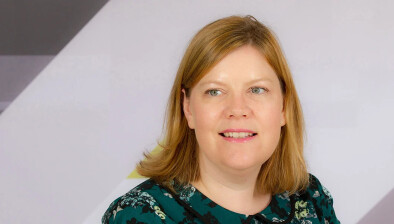Ryan Russell: Making United Capital a place of safety
With the building services industry having the highest incidence of mental health problems and suicide, United Capital director Ryan Russell said awareness is critical and understanding vital.

Ryan Russell
As a former specialist mental health lawyer for over a decade, talking openly about the mental health crisis in our society has been important to me for a long time. Most of us might know a few friends, family members, or colleagues who are going through a difficult time, but the truth is that is the tip of the iceberg.
The magnitude of the mental health crisis is mostly hidden from public view; every city in the UK has multiple hospitals and units for people detained under the Mental Health (Care and Treatment) (Scotland) Act 2003, and hundreds, if not thousands more on community-based orders.
In my experience, people from all walks of life struggle with their mental health, and the pandemic years have only made the situation worse. I have seen first hand over the last decade the extent of the problem around the country Scotland but also, specialising in employment law, the impact that mental health issues have on people in the work place.
As non-executive director at United Capital, I get to bring my experience with mental health in the workplace to the building services industry – because trust me, even the quickest look at some statistics will hint at a situation that needs to be addressed, and quickly.
- As many as one in three construction workers experience some level of anxiety every day
- The same number of people have had a mental health crisis in the last 12 months
- 73% of workers feel their employer doesn’t know how to recognise mental health problems
- Worst of all, our industry has the highest suicide rate, with two people dying by suicide each day
What is this all about, and why does this crisis seem particularly acute now?
Well, in part the high suicide rate can be attributed to the fact that this is a heavily male-dominated industry, with men making up around 88% of the workforce. Suicide is the biggest killer of men under 45, so it seems not unlikely that when you bring a lot of men together, some of them will be struggling with their mental health.
But that isn’t the whole story. Building services can be a tough industry to work in. Work can often be seasonal and uncertain, leading to financial insecurities. The life of a tradesperson is physically demanding and can involve long days and weeks away from home. It can be hard to picture a viable career path for someone who, through age or even injury, is no longer physically capable of a full-time manual job. And let’s be honest, there’s an endemic macho culture, where many people certainly don’t feel able to open up to peers or managers, or admit to weakness, much less when it comes to mental health. Add in a pandemic, and you’ve got a perfect storm.
So what do we do about it? We can’t change the culture across the entire industry, but we can support companies in the United Capital group to act in a way that’s open and understanding about mental health, and which is intentional about putting help into place for anyone who might need it. That’s why we’re kicking off the #UnitedWeCare campaign – our commitment to making our group a place of safety for anyone in need of support is real.
Offer stability in a fractured industry
Mental health problems are most acutely seen in those who are self-employed, agency workers, or on zero-hour contracts. This is clearly an unhealthy and unstable situation for all concerned, and United Capital group companies aim to offer permanent well-paid work in every instance they can.
It goes wider than that though; how often do business owners or managers consider what the downward pressure is like for their supply chain? We know that working closely with our supply chain as partners right from the get-go helps to alleviate issues early on, instead of piling on pressure as jobs comes to a close. Perhaps larger companies have a moral obligation not to pass the pressure down the chain to smaller businesses.
Normalise a healthy workforce as a prerequisite for quality
Tight deadlines, all-weather outdoor work, unhealthy diets when working away from home, financial concerns; all of these pressures can combine to make it difficult for manual labourers to put in their best work every single day. We all know someone who has had a bad experience with a tradesperson. Productivity and quality can be patchy, if not notoriously low across the industry, and one of the ways that can be addressed is by focusing on health – both physical and mental.
Leaders in our industry should be thinking about how they can change the culture into one where a focus on health and self-care is accepted and encouraged. What that looks like for you? Only you’ll know. Possibilities might be putting into place a comprehensive employee support programme so that those in difficulty have someone to reach out to anonymously, a 10,000 steps a day challenge, or a signpost to mental health resources such as the Construction Industry Helpline app during on-site toolbox talks.
Role model empathy and openness
It’s the 21st century and the industry we work in is at the heart of a mental health crisis for men. Isn’t it time we ended the macho culture where banter is at the heart of many interactions, and instead tried to embed an ethos of empathy, a willingness to talk about mental health?. Those types of behaviours are good for no one, and in fact might be very damaging for some.
As a leader you have to take a deep breath and start to break down the barriers in communication that often exist between men. Let everyone know that you’re open to confidential conversations with anyone in difficulty, make sure your offices and worksites are covered in posters that signpost where mental health resources can be found, and start to assess what employee support programme you can implement – as a matter of urgency.
Honesty is key but it’s often difficult for people who are struggling to let their guards down. That is why we are trying to implement a supportive culture which encourage people to let down those guards and get the help and support required before any situation is exacerbated. There is a mutual vested interest in keeping our employees mentally well, and just because we cannot see what is going on inside a person’s head, we can still be proactive and let them know where we are should they need help.
We have all seen accidents or injuries on work sites; people rush to the aid of the injured employee when they can see a gaping wound or a broken bone. There is a stark difference when people cannot necessarily see the injury: no one automatically runs to support the employee who is unwell. These unattended injuries can fester away, leaving mental health to deteriorate, which is why we are on a mission to adopt an open and supportive culture across our group.
United We Care
I’ve seen things change over the years, and the stigma around mental health issues has certainly faded, to an extent. But it’s not enough. Awareness is critical, understanding is vital, and putting in place a culture that recognises and supports people who are experiencing a crisis is vital for any 21st century employer. Mental health problems don’t discriminate, and most of us will either give or receive support (or both) at some point in our working lives. Employers who are committed to being there for employees in times of crisis are fulfilling their moral duty, but will also see the return on that investment through a loyal and motivated workforce.
United Capital group companies are not perfect – no organisation has this nailed, and too few in our industry are trying. Our intention is to put in place a raft of measures that will lead to a culture change for all of us. We must be proactive and not reactive to problems that have already surfaced. Our employees and our customers deserve the best that we can give them, and that’s why #UnitedWeCare.
















